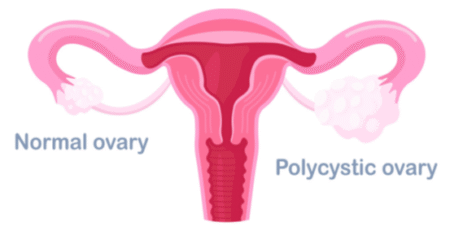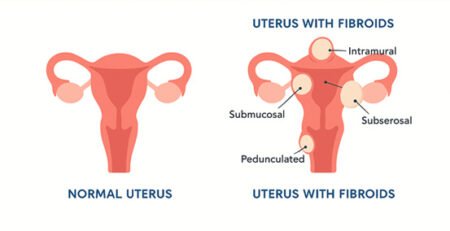Your Pregnancy Journey
Checkups, Scans, and Tests During Pregnancy: Your Guide to a Healthy Journey
Pregnancy is a remarkable journey, and a crucial part of ensuring a healthy outcome for both you and your baby involves a series of regular checkups, scans, and tests. These medical procedures are designed to monitor your health, track your baby's development, screen for potential conditions, and provide timely interventions if needed. This guide will walk you through the common medical appointments and tests you can expect during each trimester, helping you feel informed and prepared for every step of your prenatal care.
1.1 Initial Prenatal Appointment
Your first prenatal visit is typically the longest and most comprehensive. It's an opportunity for your healthcare provider to gather a complete medical history, including any pre-existing conditions, past pregnancies, and family medical history. You can expect:
- Confirmation of Pregnancy: Often through a urine or blood test.
- Physical Examination: Including blood pressure, weight, and a pelvic exam.
- Due Date Calculation: Based on your last menstrual period and early ultrasound.
- Discussion of Lifestyle: Advice on nutrition, exercise, and avoiding harmful substances.
1.2 Essential Blood Tests
A series of blood tests are performed early in pregnancy to screen for various conditions that could affect you or your baby:
- Blood Group and Rh Factor: To determine your blood type and if you are Rh-negative, which may require Rh immunoglobulin (Anti-D) later in pregnancy.
- Full Blood Count (FBC): To check for anemia (low iron levels) and other blood disorders.
- Screening for Infections: Tests for rubella (German measles) immunity, hepatitis B and C, HIV, and syphilis. These are crucial for preventing transmission to the baby.
- Genetic Screening: Options for screening for chromosomal conditions like Down syndrome (Trisomy 21), Edward syndrome (Trisomy 18), and Patau syndrome (Trisomy 13). This can involve blood tests (e.g., Non-Invasive Prenatal Testing - NIPT) and/or a nuchal translucency (NT) scan.
1.3 Dating and Nuchal Translucency Scans
Ultrasound scans provide visual insights into your baby's development:
- Dating Scan (Early Pregnancy Scan): Usually performed between 6 and 12 weeks. This ultrasound confirms your pregnancy, establishes your due date more accurately, checks for the baby's heartbeat, and determines if you are carrying one or more babies.
- Nuchal Translucency (NT) Scan: Often performed between 11 and 14 weeks as part of combined first-trimester screening. This scan measures the fluid at the back of the baby's neck, which, combined with blood test results, helps assess the risk of certain chromosomal abnormalities.
2.1 Routine Mid-Pregnancy Checkups
Your prenatal visits will continue, typically every four weeks, focusing on:
- Blood Pressure and Weight Monitoring: To track your overall health and identify any trends.
- Urine Tests: To check for protein (a sign of preeclampsia) and sugar (a sign of gestational diabetes), as well as urinary tract infections (UTIs).
- Fundal Height Measurement: Your healthcare provider will measure the distance from your pubic bone to the top of your uterus to estimate your baby's growth.
- Fetal Heartbeat: Listening to your baby's heartbeat is a reassuring part of each visit.
2.2 Anomaly Scan (Morphology Scan)
This is a detailed ultrasound performed around 18 to 22 weeks of pregnancy. It is a comprehensive check of your baby's anatomy to ensure all organs are developing correctly. The scan examines the brain, heart, kidneys, spine, limbs, and other structures. It can also confirm the baby's sex if you wish to know.
2.3 Gestational Diabetes Screening
Between 24 and 28 weeks, you will typically undergo a glucose tolerance test (GTT) to screen for gestational diabetes. This involves drinking a sugary solution and having your blood sugar levels checked after a certain period. Early detection and management of gestational diabetes are crucial for both maternal and fetal health.
2.4 Rh Immunoglobulin (Anti-D)
If your blood type is Rh-negative and your baby's father is Rh-positive (or unknown), you may receive an Rh immunoglobulin injection around 28 weeks. This prevents your body from producing antibodies that could harm a future Rh-positive baby.
3.1 Increased Frequency of Checkups
From week 28, visits typically occur every two weeks until week 36, then weekly until delivery. These appointments continue to monitor:
- Blood Pressure and Weight: Crucial for detecting conditions like preeclampsia.
- Urine Tests: Continued monitoring for protein and sugar.
- Fetal Position and Size: Your provider will assess how your baby is positioned for birth and estimate their size.
- Fetal Heart Rate: Regular checks of your baby's heart health.
- Cervical Checks: Towards the end of pregnancy, your cervix may be checked for dilation and effacement to assess readiness for labor.
3.2 Group B Streptococcus (GBS) Test
Around 35 to 37 weeks, a swab test is performed to check for Group B Streptococcus (GBS) bacteria. GBS is common and usually harmless to adults, but it can be passed to the baby during birth and cause serious infection. If you test positive, you will receive antibiotics during labor to protect your baby.
3.3 Nonstress Test (NST) and Biophysical Profile (BPP)
These tests are typically performed if there are concerns about the baby's well-being, if you are past your due date, or if you have certain medical conditions:
- Nonstress Test (NST): Monitors your baby's heart rate in response to their movements. A healthy baby's heart rate will accelerate when they move.
- Biophysical Profile (BPP): Combines an NST with an ultrasound to assess your baby's breathing, body movement, muscle tone, and the amount of amniotic fluid.
3.4 Recommended Vaccinations
Certain vaccinations are highly recommended during the third trimester to provide protection to your newborn:
- Tdap Vaccine: Recommended during each pregnancy, ideally between weeks 27 and 36, to protect your baby from whooping cough (pertussis).
- Flu Vaccine: Recommended annually during flu season.
- COVID-19 Vaccine: If not already vaccinated, it is recommended during pregnancy to build antibodies that can protect your baby.
- RSV Vaccine: Discussion about the Respiratory Syncytial Virus (RSV) vaccine is also important, as RSV infection can be life-threatening for babies.
Conclusion: Partnering for a Healthy Pregnancy
Navigating the various checkups, scans, and tests during pregnancy can feel overwhelming, but each one plays a vital role in ensuring the health and safety of both you and your baby. By understanding the purpose of these procedures and actively participating in your prenatal care, you empower yourself with knowledge and confidence.
Remember to maintain open communication with your healthcare provider, whether it's your trusted `gynaecologist near me` or `best lady doctor near me`. For comprehensive care and support, consider facilities like `Shri Tirupati Hospital Ghaziabad`, known as a `top hospital in Ghaziabad` and `best hospital in Ghaziabad`.
Free Consultation for Expectant Mothers!
Have more questions or need personalized advice? Join our free consultation session with an experienced gynaecologist.
Every Friday
6:00 PM to 8:00 PM
Visit Us At:
Shri Tirupati Hospital Ghaziabad
E Block, Kavi Nagar, Ghaziabad
For appointments, call us at:
Email: shritirupati.hospital@yahoo.com
Get Directions










Leave a Reply